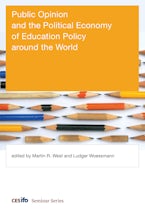This is a superbly lucid, erudite, and useful book. Geoffrey Rockwell and Stéfan Sinclair have been actively engaged in creating tools and platforms for text analysis for more than a decade. They bring their considerable practical knowledge together with their critical sophistication as scholars of literary interpretation in a conversational text that is as generous to the reader as it is informative. This will be a must-have, go-to book for anyone teaching or working in text analysis in the digital humanities—and it comes as close as any work to date to making an argument for the value of computational methods.
Johanna Drucker, Breslauer Professor of Bibliographical Studies, University of California, Los Angeles
Philosophically informed, historically contextualized, and technologically savvy, Rockwell and Sinclair set a new standard for probing both the conceptual underpinnings and the epistemological potential of digitally enabled interpretations of written expression. By engaging with Hermeneutica's integration of past and present, virtual and physical, and theoretical and practical, both advocates and skeptics of digital humanities will benefit in multiple and enduring ways.
Chad Gaffield, Professor of History and University Research Chair in Digital Scholarship, University of Ottawa; former President and CEO, Social Sciences and Humanities Research Council of Canada
With great intelligence, creativity, and care, Rockwell and Sinclair, two of the leading practitioners of humanities computing, explore what happens when digital tools, literary theory, and textual exploration are brought together in highly interactive ways. The outcomes are by turns surprising, illuminating, and even playful, but most of all thought-provoking for all those who care about how we read and analyze texts.
Dan Cohen, founding Executive Director, Digital Public Library of America
A technological revolution, in its historical context, brings old things around again but makes them new. Obsessed by the never-before-possible, focused on results, we may miss changes in practice far more important than either. Hermeneutica, from the hands of two Canadian pioneers 'weaving together of hermeneutical things,' pays attention, gives examples, and provides tools for participating in our renewal of scholarship.
Willard McCarty, FRAI, Professor, King's College London and Western Sydney University











